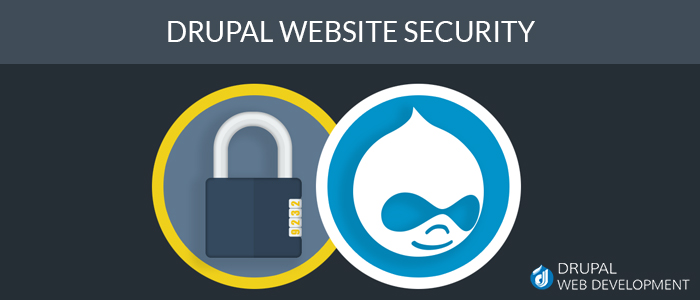5 Simple Steps You Can Take to Improve Drupal Website Security
Running an online business involves taking website security seriously. The Internet landscape continues to grow at a rapid pace, with a growing number of sophisticated digital devices, such as smartphones, tablets and other portable devices, all of which host sensitive personal and business information.

The potential for having confidential information compromised is real nowadays and if website security measures are not in place, online businesses could face disastrous repercussions. Many online businesses use Drupal for their CMS website due to its robust nature, scalability, and solid security, but even the best of the best like Drupal can face the threat of hackers.
In order to reduce the potential for security breaches of your Drupal website consider implementing these 5 steps:
1. Adding The Password Policy Module
This particular module enables the ability to set specific parameters for passwords such as number of digits/characters, expiry of passwords, whether or not reuse of passwords are permitted. In addition, the pastor policy module can be applied to a set of users or a specific user.
2. Using The Login Security Module
This module permits the ability to limit the number of failed attempts for login and can also provide notification to the site administrator if there are attempted brute force attacks.
3. Using The Security Review Module
With the use of this module, one can simply install, enable and execute a list of security checks, such as safe error reporting, failed login attempts, user access control, system permissions, etc.
4. Adding The Spamspan Module
This handy module protects website e-mail addresses from pesky spam bots.
5. Keep Modules Up to Date and Keep a Backup
The Drupal community continually works to ensure modules are updated with the latest security. It’s best practice to check for module updates on a weekly basis and install them promptly.
While Drupal is innately configured for high functionality and security, no website is immune to online security threats. Protecting your Drupal website from unwanted attention from hackers can be achieved by using the above noted security solutions and regularly monitoring your website for security vulnerabilities, as well as ensuring that your hosting environment is secure.

